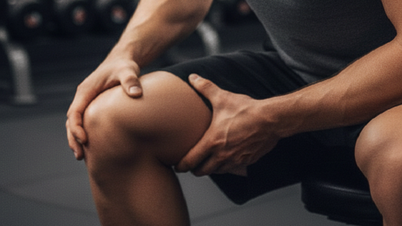Dietary changes, pelvic floor muscle exercises, weight loss, and smoking cessation can help people with urinary incontinence improve their condition.
There are many causes of urinary incontinence such as urinary tract infections, pelvic floor disorders, chronic constipation, overactive bladder... The disease is common in older men, women after pregnancy and menopause, due to hormonal changes, aging body. Signs include urine leakage when the patient coughs, sneezes or feels the sudden urge to urinate. Besides medical treatment, lifestyle changes can reduce the symptoms of the disease.
Control water intake
Drinking enough water is essential for overall health. However, people with urinary incontinence should limit their fluid intake before bed and spread out their fluid intake throughout the day. They should also avoid dehydration, which can cause strong-smelling urine and irritate the bladder. This can make urinary incontinence worse.
Change your diet
Foods such as chocolate containing caffeine, spicy or acidic foods can irritate the bladder and make urine leakage worse. Therefore, patients are advised to eat less fat, more vegetables, grains, and foods rich in vitamin D and magnesium. These two nutrients can improve urinary incontinence by reducing bladder muscle contractions. Thanks to that, this organ empties when urinating. Another dietary recommendation is to increase fiber intake because constipation also puts pressure on the bladder.

Drinking enough water, eating lots of fruits and vegetables... helps reduce constipation and urinary incontinence. Photo: Freepik
Pelvic floor muscle training
Performing kegel exercises can help flex the pelvic floor muscles to stop the flow of urine. The patient tightens the pelvic floor muscles by stopping urination and holding for three seconds, doing it up to 10-15 times. Many studies show that people who maintain kegel exercises for more than 12 weeks can improve bladder control.
Quit smoking
Nicotine can irritate the bladder. Smokers are more likely to suffer from urinary incontinence than non-smokers, according to a Greek study. Long-term smokers tend to cough more, which puts strain on the bladder and pelvic floor muscles.
Bladder "training"
Regular urination is helpful for people with this condition. To "train" the bladder, when feeling the urge to urinate, the patient should try to hold it for 10 minutes. This method is to increase the time between toilet trips until urinating every 2-4 hours.
Losing weight
People with urinary incontinence who are overweight or obese should plan to lose weight. Excess body fat in the abdominal area puts pressure on the bladder, making the condition worse. Safe ways to lose weight include changing your diet, getting regular physical activity, getting enough sleep, and managing your stress levels.
Huyen My (According to Health.com, Mayo Clinic, NDTV )
Source link












































































































Comment (0)